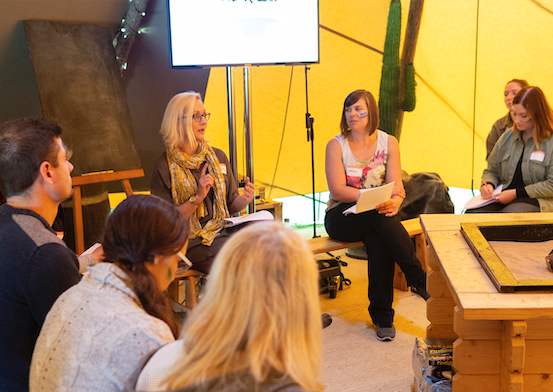Talking at the yearly Paraplanners Powwow, Aleksandra Sasin, founder of Navigatus and Jackie Manning of Tilney shared some of the techniques they have discovered and use to improve the way they work and to get things done in the working day.
Over the course of this week we are publishing some of the ideas from the session.
4. Weekly brain dump
Aleksandra Sasin said she found it useful to planning her week to go through the process of a weekly ‘brain dump’.
On a Sunday evening she would sit down and literally write down everything she needed to do in the next week. This would be in no particular order – the purpose of the exercise was to get everything down on paper.
She said she also does not differentiate at this stage between work and personal tasks or time frames. If in the process she thinks about something she might need to do in two weeks or a month’s time, it goes down on the paper.
“Literally it’s everything that comes into my mind. But then all my life is down on paper, all my ‘To Do’ items; I’m not going to forget anything.”
She then distils the list into what needs to be done and when; prioritising by what is important and what can wait. “By writing it down it gets it out of your head and on to paper and that makes it easier to deal with and to prioritise.”
As a business owner Aleksandra says Sunday evening is the best time for her to go through this process, as it means she is prepared for the week ahead. But it works equally as well on a Friday afternoon. But she recommends not to do this process on a Monday morning. “On a Monday you want to come straight in and know what you have to be getting on with.”
Jackie suggested that the brain dump could be the starting point for use of other productivity techniques, such as the ‘one big thing’, or the pomodoro technique, to immediately get on with your already defined priority task)s) and not procrastinate or become distracted with smaller tasks at the expense of the more important one(s).
“It’s a good way to help you visualise and have control over what you want to do, mapping things out,” she said.
Aleksandra pointed out that there had to be flexibility around the list to account for changing priorities. “New elements may change the order in which you would undertake tasks. The point is that you go into the week prepared.”
“And because everything is down on paper, it’s all there in front of you, reducing the chance of tasks cannot being forgotten,” Jackie added.
The annual Powwow is held under Chatham House rules – which allow for reporting of what was said but not who said it. Those mentioned directly in this piece have given their permission for their name to be used.






























